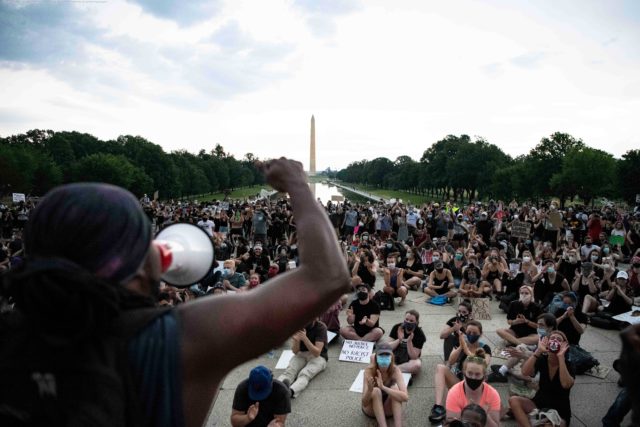With protests continuing in the aftermath of George Floyd’s death, the percentage of Americans who say black people face a lot or a great deal of…
With protests continuing in the aftermath of George Floyd’s death, the percentage of Americans who say black people face a lot or a great deal of discrimination has increased in an ongoing national survey.
Sixty-two percent of Americans said black people face that magnitude of discrimination, according to a survey and analysis conducted May 28 through June 3 by the Democracy Fund + UCLA Nationscape Project, a large-scale study of the American electorate. The results marked an increase of 7 percentage points from the results found a week earlier.
The data showed that:
More broadly, 96% of Americans acknowledged, to varying degrees, that black people face discrimination – with answers ranging from a little (10%) to a great deal (39%), according to the Nationscape Insights analysis, a project of Democracy Fund, UCLA and USA TODAY. The survey data collected between May 28 and June 3 had a margin of error of plus or minus 2.2. percentage points, as did the survey conducted May 21-27.
«I think it just speaks to the fact that African Americans are reporting a very different experience than the ones that we’re seeing among different racial groups,» said Robert Griffin, research director for the Democracy Fund Voter Study Group.
On Saturday, thousands of demonstrators filled the streets of the nation’s capital to demand an end to systemic racism and to protest Floyd’s death. African Americans led many of the protests across the city, but other protesters of all backgrounds showed up in support of the Black Lives Matter movement.
Tomas Apaan, 28, a Washington native who is black, said his mom recalled that not as many white people participated in protests during the 1960s civil rights movement. But now, Apaan said, the protests are more multiracial.
Домой
United States
USA — mix Percentage grows among Americans who say black people experience a 'great deal'...






